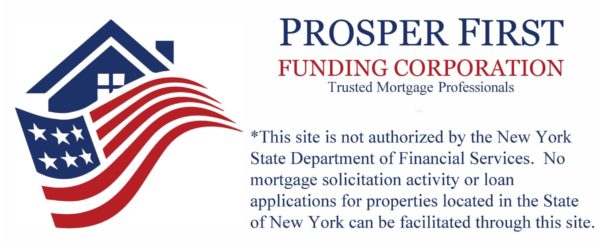The news is buzzing with chatter about the new mortgage rules implemented by the Consumer Financial Protection Bureau (CFPB) this past month. Some are good, some bad, and nearly all are filled with jargon that is potentially confusing. The bottom line of these new rules is actually pretty simple – some call it as easy as “Finances 101.” The central point is this: lenders cannot lend to borrowers unless they can prove that the borrower has the ability to pay their loans back.
Seems pretty simple, right? This is the way it was supposed to have worked all along. But in the days leading up to the financial crisis in 2008, things were not always as they seemed. 50% of the loans in default that were issued between 2005 and 2008 would not have been issued under the new mortgage rules. Further, it’s estimated that 12.8% of the mortgages issued in 2012 did not meet the CFPB’s new “qualified mortgage” standard. Critics of the new rules say that the rules will make it a lot harder for borrowers to qualify – which could very well be true. Let’s take a look at exactly what is going on here and what it means for you.
Ability to Repay
The new ability to repay rules, as defined by the CFPB, mean that any loan which is outside of the FHA loan limits – usually between $417,000 and $625,500 – will not qualify if the borrower’s debt is more than 43% of their monthly income. The new rules also mean that loans offering introductory interest-only payments will be harder to find. Although many lenders have stopped offering interest-only loans, they remain popular in high-cost areas. Interest-only loans contributed to the housing crisis as many borrowers could not afford their monthly payments once the introductory interest-only period expired.
Be Prepared to Disclose More Information
The new mortgage rules also mean that you’ll have to provide more financial information to lenders before qualifying. Self-employed individuals may be required to traverse a few more obstacles than before, and individuals who receive 1099s will be asked to provide two years of annual 1099 income proof. The average of both years will be calculated to process the application. Things become a little tricky for those who have recently become self-employed, but can’t necessarily provide two years worth of self-employed income. In these cases, former W-2 information may not be calculated, and self-employed borrowers would be required to provide the necessary 1099-only proof of income. For individuals with W-2s, the lender will use the current year’s income to calculate what they can afford.
Tougher Requirements for Mortgage Services
Separate from the new qualified mortgage rules, but still part of the CFPB’s reforms, are new regulations aimed at protecting consumers from abuses by companies that collect monthly payments. For instance, mortgage servicers will now have to contact borrowers by the time they are 36 days late on their payment to discuss further options. Servicers now cannot start a foreclosure until borrowers are 120 days late on their payment, nor can they start a foreclosure while working with a borrower who has submitted an application for help.
Although the new mortgage rules might make it harder for some borrowers to qualify, the CFPB hopes they are a step closer to overall financial stability in the market. Only time will tell if the new rules prove to be an unruly hindrance to the loan process, or the sort of tough love the American market needs to rid itself of the lingering effects from the housing crisis once and for all.
Still have questions about what the new mortgage rules mean for you? Don’t hesitate to reach out today!
My husband and I are looking at a house that has an HOA, but we never lived with one before so we are curious to know if there are benefits to having one. I liked how you pointed out that one good thing is that they will provide a landscape company to help with the yard work. It will be great not having to worry about spending all of our time doing it, but having it still look nice.
Very nice love the colors
I would love to have a tiny home to live in! It seems more manageable and affordable. The Hiatus in Oregon is beautiful. I love the wood floors. can you put a tiny house on any property? Thanks for the inspiration and information!
I have a home in Stamford CT and I am looking for someone to assume my mortgage. Not sure if you are interested in something like this based on what I saw on your website. Eric
Is it possible to buy a first home with a 580 credit score? The house is in Groton ct and is only $90,000
